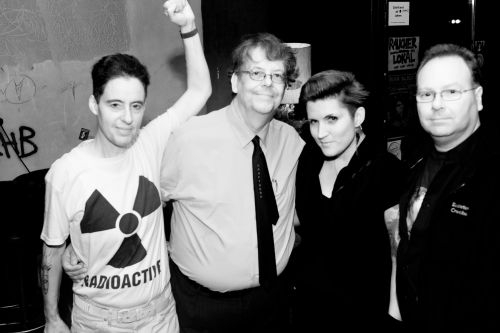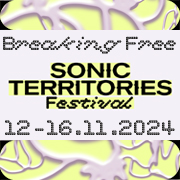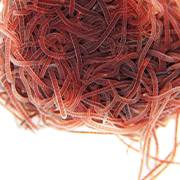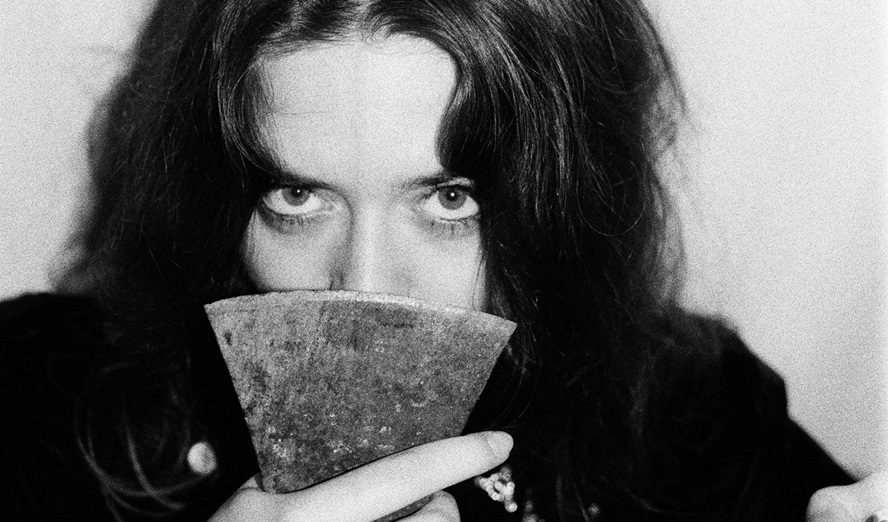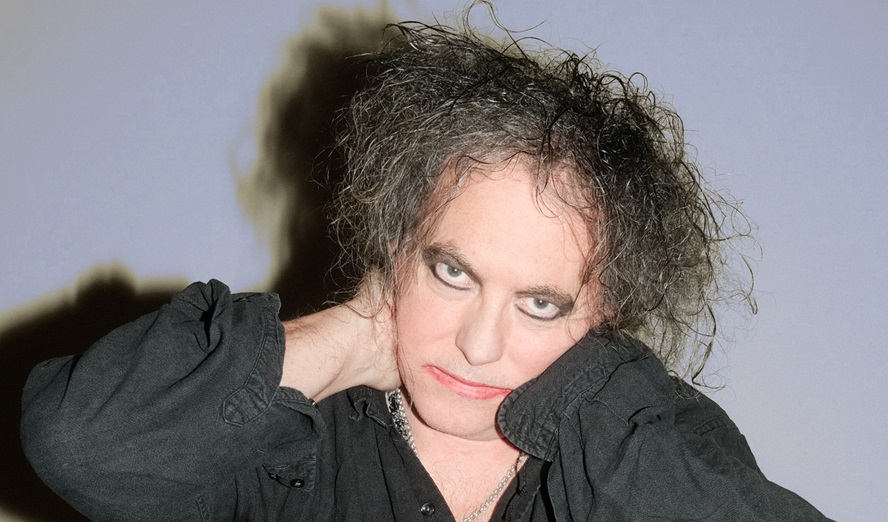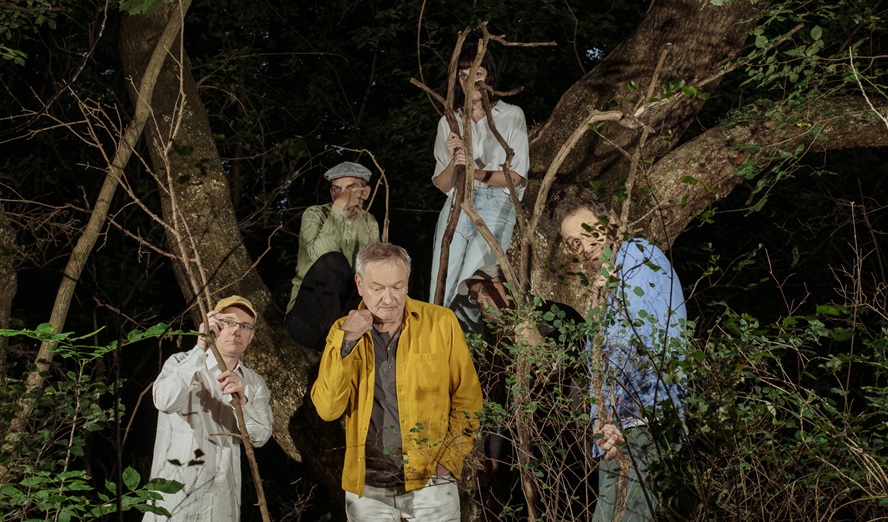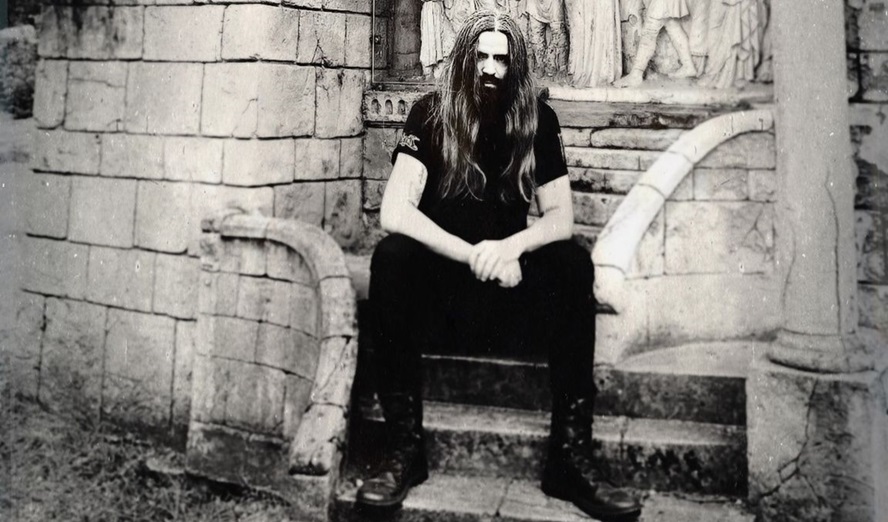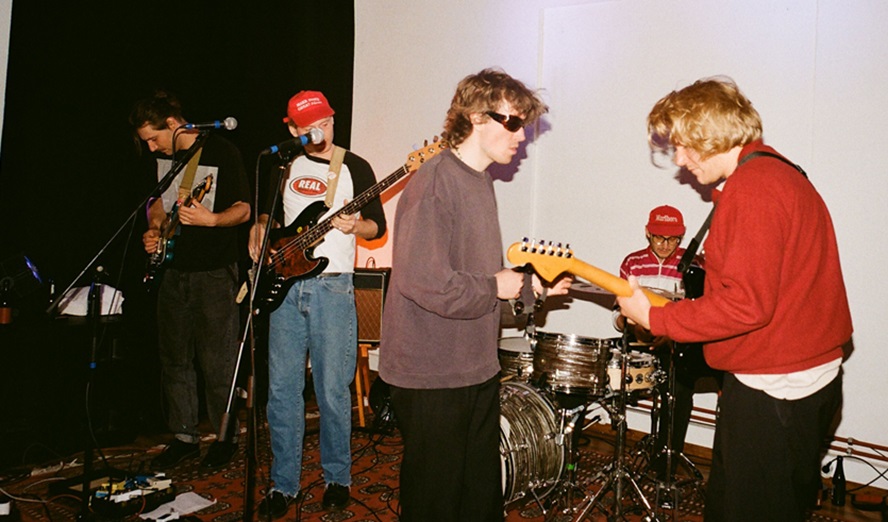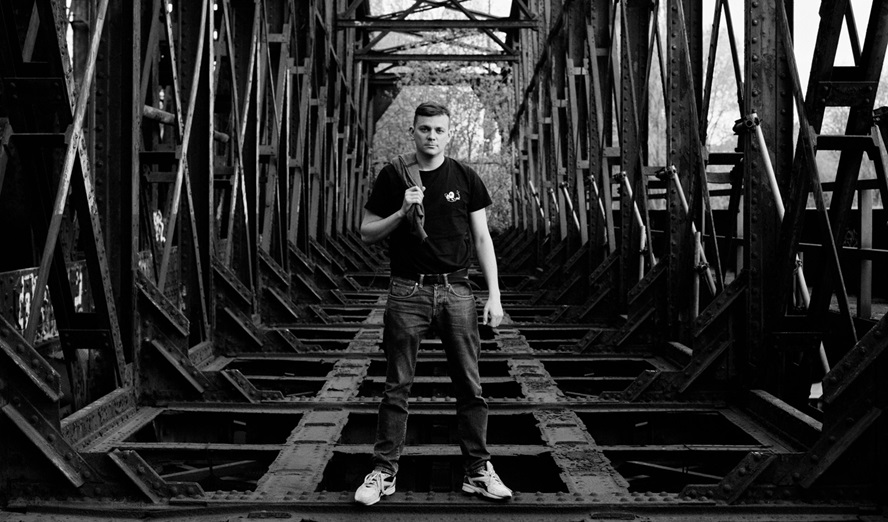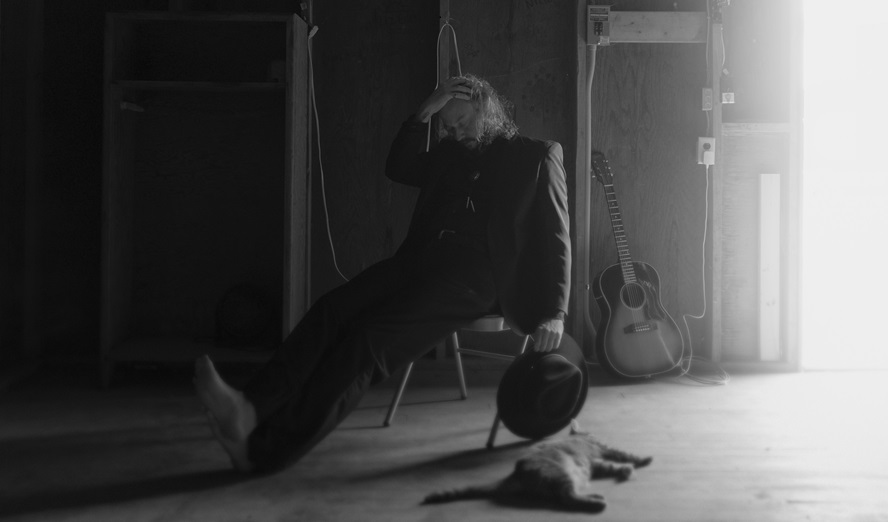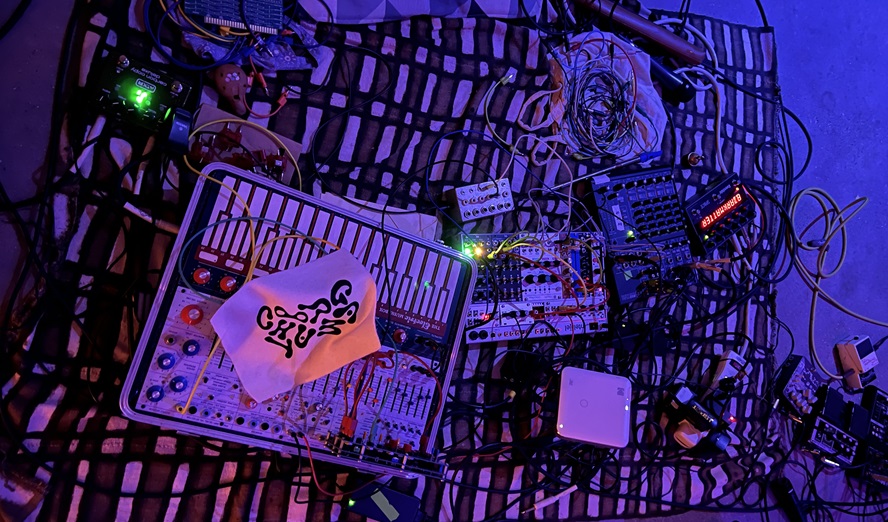Long-lost tapes and super-rare Vinyl recordings resurface as re-releases on devoted labels and on the decks of ambitious synth-loving DJs around the world. The renowned club night Brave Exhibitions invited one of seminal Minimal Wave bands, Oppenheimer Analysis, to perform a live set in Berlin, almost thirty years after their first recording sessions. Along came Mark Warner, member of another pioneering act, Sudeten Creche, to see his friends on stage together with the new rising hope of the Wave world, Daybed.
skug: Are there any interview questions which you would like being asked that you where never asked before?
Andy Oppenheimer: »In your wildest dreams, how do you see yourself – and really knowing that it could be impossible, but das macht nichts – just some fantastic image of yourself.« Answer: Being onstage with a huge show that would be actually choreographed and broadcast across the world! OK, that’s my delusions of grandeur finished for the day!
Quite surprising! To go on with a rather typical »Oppenheimer« question about your profession as an expert on weapons of mass destruction: Do you consider yourself a scientist?
AO: I deal with scientific material, but I’m a defense analyst and consultant. So I’m not a practicing scientist, but the material that I deal with is scientific and technical as well, as being in terms of policy and assessment and analysis of terrorism and weapons of mass destruction.
What is your approach on the »truths« of sciences? Can science answer questions?
AO: Science is a big undertaking. Few scientists write about what they do, go on television or write books, turn the subject into something more popular, but many, many scientists, and certainly the ones I would know and deal with, are usually sworn to secrecy and are not allowed to talk about what they do. I perform an interface between what they do and what the public learns, so I’m kind of a gateway of information. If somebody develops an invention for defense, I will then describe or analyze it for many people, whether they are governmental or the public. But mostly science is a team, there are not many individual famous scientists now. In days gone by, scientists were inventors, they were creators, and they were leaders. But we don’t have so much of that anymore because it is a very corporate operation now.
I think this works as a metaphor for pop music as well: Do you see Oppenheimer as a kind of gateway between the underground and more popular synth acts?
Martin Lloyd: It’s probably a tunnel in which we channel our own musical tastes and enthusiasms to produce music that we really enjoy. If people enjoy the music as well then that’s really fantastic. It’s a way of communicating all your ideas that are in your head to the public and people who show an interest in the stuff you do. Music has quite a lot in common with science and my job in medicine. You are working to a large extent in the public sphere. You are under public scrutiny all the time. So there are aspects of performance both in being a journalist or a doctor. Also: People like their doctors and scientists to be pretty precise, obsessive people, and they like their musicians to be that as well.
Are you obsessive musicians?
Mark Warner: To some extent: yes. I’m not a perfectionist, but yes. If I start something I work on it until it’s finished, so that means if I started a song maybe four days later I finish it, do I sleep in between? Sometimes, but probably not. There is a degree of obsession, but not fanatical obsession.
Making music as Sudeten Creche is one of your main obsessions in life?
MW: Sudeten Creche never finished, we just do other things as well. When the mood takes us we come back together and do more.
Andy, you have been dealing with your musical obsession by hosting club events in the 80s. What is the difference between now and then?
AO: Difficult to say because now I am an old man, I don’t go to clubs very much, other than when we play in them. What I see in general is the time that we had our great passion for synthesizer music in the late 70s and early 80s and when the clubs were really exploding into a completely new genre, it was far more imaginative and the young people were finding different ways of expressing themselves – in their music, in their clothes, in their sexuality. And all those things suited me. I was already in my late 20s in those days. Now that I’m in my late 50s, I think that everything has become very uniform and that people go to clubs, they don’t look very interesting, unless there is a special night for the 80s or another theme night. I think the music really is much manufactured and many things have happened to change it, the internet, MP3s and so on. But also as we have these talent shows now and as a star is born for the whole world, there can’t be a very special set of performers that can come out of the clubs. The clubs are just playing what’s out there and nobody is really thinking much about it. It may be just my view but I don’t think there is anything very new now. That is the problem: What is new? If anyone can tell me …
ML: I would say that in the 80s when people started going to clubs all the music they used to listen to was commercial music that was produced by professional musicians in professional studios. And although we love that music, Bowie and Roxy Music and T.Rex and Kraftwerk etc., it was commercial music being made for large audiences. People who were recording their own music at home and maybe they had a small distribution amongst friends or by mail, but they didn’t get played in clubs. There were no clubs that I was aware of in the UK that were playing homemade music. Nowadays you can record a piece of music at home and it can be on the internet or it can be played in clubs the next day. So I think there are a lot of interesting clubs across Europe, in the States and in UK where the DJs are prepared to mix current music produced by beginners, amateur musicians or real enthusiasts, and to mix that in with great music from the past as well. So I actually disagree with Andy, I think that things are quite different now from the early 80s.
AO: ?? that’s because you get to go to more clubs than I do, and also because I’m thinking of the commercial clubs.
MW: I think those did exist in the early 80s. I mean if you think places like Rock Garden: But is it like today? No, it was very different back then.
ML: I went to a Steve Strange Blitz Christmas party a couple of years ago. The people were wearing the same clothes that they used to wear back in the 80s, but they were all in their 40s and 50s.
AO: I’m talking about young people. We’re old, you know, we’re yesterday. Those are kind of commemorative nights really.
ML: Music was still a lot better than what you hear in most clubs nowadays!
(Andy and Martin are off to soundcheck, the interview continues with Mark Warner)
MW: I think in the 80s if people dressed differently or provocatively, it attracted attention. You stood out and there was some danger in doing that, going out in the street looking very different to everyone else around you. These days who really bats an eyelid if you see a punk with a mohican or a goth chick wearing lots of lace? Where’s the innovation? I think a lot of things today are retrospective and not prospective, looking forward.
In music as well?
MW: Fresh music is not easy to find, despite modern distribution and all the rest of it. What has happened is suddenly an explosion of similar sounding artists,
music, whatever you want to call it. Trying to find the distinctive, unique and creative within that is actually quite difficult; you’ve got to listen to a lot of stuff before you come across something.
Can you name any contemporary acts that you like?
MW: Besides the band that I came to see here, Daybed, I can also recommend Epic Dreams from Germany who have recently resurfaced on the musical radar.
How did the way of making music change in your case from when you started up to now?
MW: It was very very different. When we first started in 1980/81, we had very little equipment and money; equipment was incredibly expensive back then. We made the best music that we could, music that we liked to please ourselves more than anything else, we never really thought about an audience, and the fact that people liked it was a bonus and a surprise. These days we still don’t have a lot of money but far more equipment, a lot more skills and experience in composing, recording, mixing, mastering and all the rest of it, so we find it easier to produce good sound quality music and recordings now. We would have spent days in the studio back then, now we can do it at home in our own studios and that’s great. It enables our creativity, it doesn’t stifle it, and we’re not reliant on lots of other people in the chain of events to actually make things happen.
Is it still you controlling the equipment or the equipment controlling you?
MW: Equipment is a tool, creativity is the human being. Having too much equipment is a bad thing, I like to explore what each piece of equipment can do and actually become inventive with the piece of equipment. I think I only have about seven different synths, I can only use one at once really. I like to develop songs or a group of songs using set pieces of equipment, use each one for each song in a different way and explore the possibilities and variations you can get from one thing. I also think that this creates a thread in a series of songs which links all the series of songs together as well.
Is there something like your sound?
MW: People say that there is a Sudeten Creche sound. I myself actually don’t know what that sound is. I suppose to a lot of people it’s defined by our very early work, our first couple of EPs from around ’82-’83. I think of it more loosely. We are minimalist and have been labeled minimalist or minimal electronic probably since some time during the 90s I think, but certainly that genre or label wasn’t around when we were doing it. We called ourselves just basically »alternative« back then. I haven’t heard the term minimalist until the 90s, so it’s a retrospective labeling …
I like minimalism. It’s always my belief in life as well as in music and art: the idea of less is more. To simplify strengthens things to make them more meaningful, more soulful and more joyful. I try to weave that into everything I do, but it doesn’t necessarily mean that the songs that we do are minimalist in terms of how few bits of equipment to use. It’s more about the structure and the arrangement of the song. We try to think about what we’re doing in a minimalist way, not necessarily record what people would say is minimalist.
When you’re not making music, do you listen to it?
MW: I do, yes. I don’t restrict myself to the minimal electronic genre, it’s better to pull ideas from a wide range of things. So I listen to anything from 15th century Madrigals through to Prog Rock into the 80s, say Gary Numan or John Foxx. At the same time I love bands like The Smiths. Bands I used to go and see in the 80s were very diverse, anything from U2 to B-52’s, which is one of my all time favorite bands around; as is Talking Heads. For example, you take a song by Talking Heads, like »Burning Down The House«: You start to pull it apart, it’s got all the elements that we’re talking about here. It’s very electronic, it’s very drum-beaty, danceable. Even a lot of the B-52’s tracks as well. OK, they’ve got guitars in them, but they’ve still got a very simple structure to them with very powerful results.
How do you deal with musical influences that surround you when composing your own music?
MW: On times I suddenly find that I recorded something and then somebody says: »Oh, but that sounds like such and such«, and I think: »Damn! Yes, it does«. And I don’t want to do that. I want to produce things that stand up on their own rights. I’m not against borrowing ideas and developing things further, but I like to do that consciously, not subconsciously. If I listen to too much stuff when I’m trying to write my own or Sudeten Creche music, than that subconscious influence can push things too far in a direction I don’t necessarily wanted to go. So I actually have a policy of avoiding it at those times, and I’m in that process at the moment because we’re working on the Sudeten Creche album and on the album from my solo project called Rossetti’s Compass. So I’m very much not listening to everybody else at this moment in time, and it will cause me a problem when I go back to England having heard Daybed, because some of that will creep in!
edited by Heinrich Deisl
